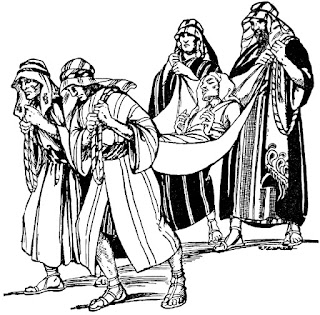God's HR Department

Google Images It’s a familiar cry. Few organizations have a excess of volunteers to accomplish all that needs to be done. The church is no exception. There is always more work than there are people to do that work. There are always plans that remain on the drawing board because there are no human resources to take that plan and make it happen. The story was the same in Jesus’ day. As He looked at the people around Him, He recognized the problem. He described them as “ sheep without a shepherd ” (Matthew 9:36). The first question we might ask is why He didn’t do something about that. He was God. He was the Great Shepherd. He could fix it. But He didn’t. Instead He gave this instruction to His followers: “ The harvest is plentiful but the workers are few. Ask the Lord of the harvest, therefore, to send out workers into his harvest field ” (9:37b, 38). It’s an odd request. He could have fixed the problem, but didn’t. Then He asked His disciples to pray to “ the Lord of the harve









